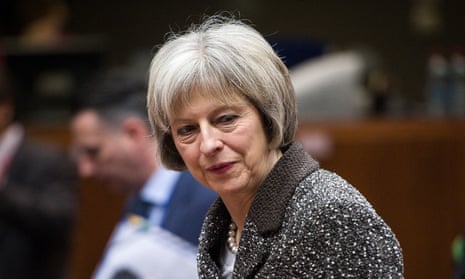Using volunteers to help clean patrol cars and check out car boot sales for stolen goods. Interviewing victims of crime on Skype, to reduce time-consuming home visits.
Far-fetched? No, these really are some of the ways in which Cambridgeshire police are trying to make savings of £16.5m. These volunteer positions, including “vehicle tasking” and property recovery, have been posted on the force’s website.
Over the past five years, police forces have had little choice about being cleverer at saving cash wherever they can. So police bosses could be forgiven for a certain amount of relief last month, when the chancellor made the unexpected announcement that police forces in England and Wales would not, after all, be hit by an anticipated cut in funding of more than a fifth.
But as Theresa May, the home secretary, told police chiefs on Tuesday, this is far from an end to the challenges they face. May said police will still face budget cuts for years to come and told forces they must make further savings and introduce more major reforms. She has argued, in a letter to police chiefs, that police funding could go down by 1.3% in real terms over the next four years.
May’s warning comes on top of significant budget reductions that have already been made. Police chiefs had been bracing themselves for massive reductions in frontline policing staff on top of the 16,000 or so officers lost between 2010 and 2015.
But it’s the effect of cuts on all other public services, including social care, probation and ambulance services, that are really of concern. All too frequently these days it’s the police who are left to pick up the pieces when nothing else is available.
Take mental health. Bed shortages on acute wards and over-stretched A&E departments mean the service most people in crisis encounter first is the police, and thousands of vulnerable people, even as young as 16, have ended up in police cells as a “place of safety”. Many are there for days, due to the absence of beds in cash-strapped mental health settings.
This is an unacceptable situation for people in distress but it’s also an unnecessary and avoidable pressure on police officers, who are plainly not mental health experts.
Strides have been made to improve the situation, including forces working in partnership with the NHS to reduce the numbers of people in cells: street triage initiatives, for example, where officers work alongside medical staff for crisis interventions. But the pressures are palpable and increasing.
Martyn Underhill, the police and crime commissioner for Dorset and a former cop who spearheaded street triage in the county, says the past five years have been tough. “The increase in demand on policing is like something I’ve never seen,” he says. “Cops are getting busier and busier with stuff that isn’t crime-related.”
Osborne may technically have pulled a rabbit out of the hat last month on police budgets but Underhill concludes that although the decision was welcome, “it is like plugging a dam”. When forces manage to make inroads in an area like mental health, other demands pop up. Cuts to social care budgets, for example, have directly led to reduced funding for people designated appropriate adults, who advocate on behalf of vulnerable people, including those with learning disabilities. That leads to police officers wasting hours waiting for support for vulnerable people.
And then there’s the growing strain on ambulance services. In some parts of the country, notably the north-west, police officers are increasingly having to transport people to hospital because there aren’t enough ambulances.
For the past five years police forces have had little choice but to get creative and work more closely with other agencies and one another. That’s a good thing. However, such moves have their limitations. Whatever else happens in the next four years there is no doubt that forces all over the country will have to continue to be ever more resourceful.
But it should not be the role of police to pick up the pieces from other services buckling under the strain of cuts. All these indispensable public services need adequate resources. The staff who work for them and the people who rely on them deserve nothing less.
Talk to us on Twitter via @Guardianpublic and sign up for your free weekly Guardian Public Leaders newsletter with news and analysis sent direct to you every Thursday.
